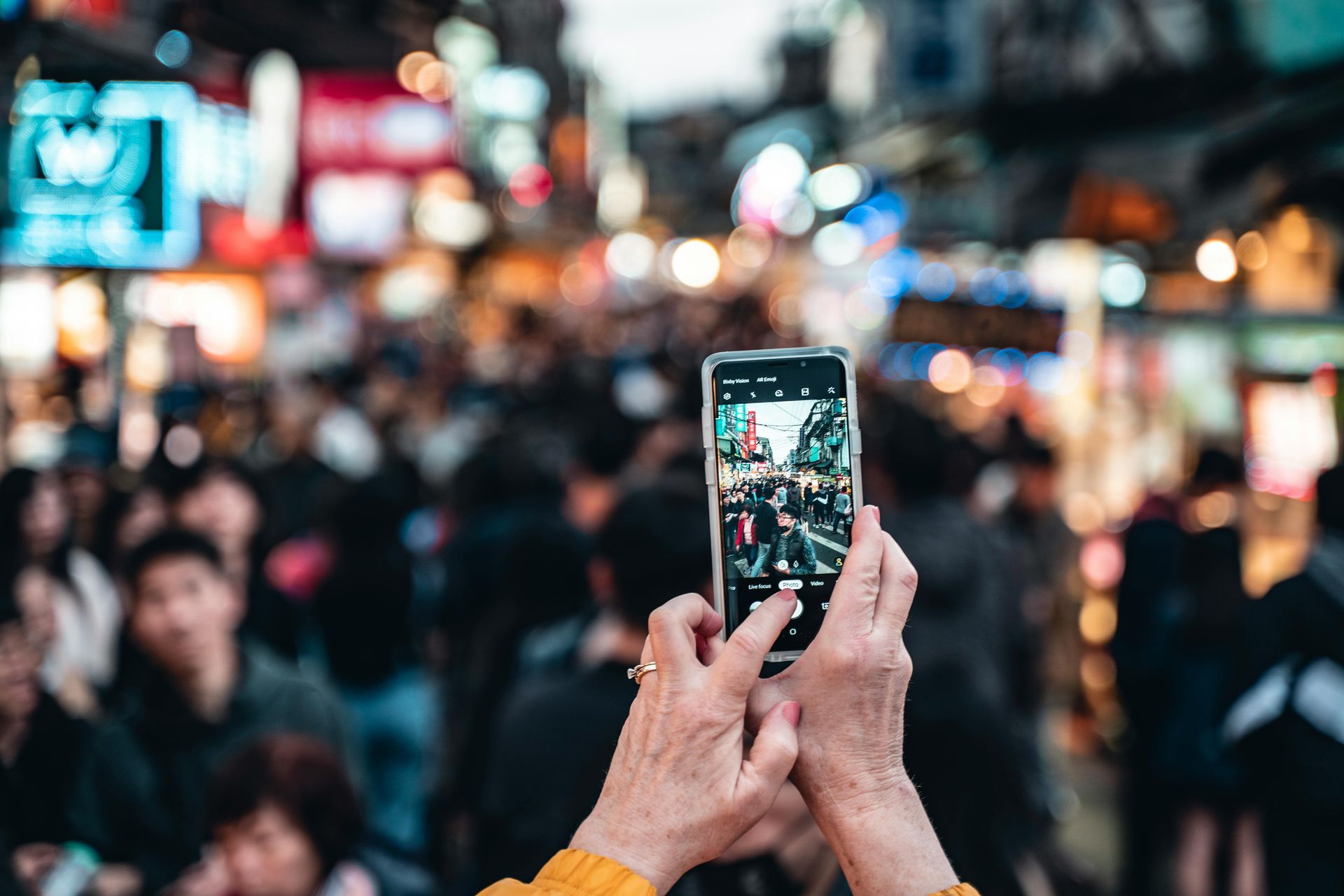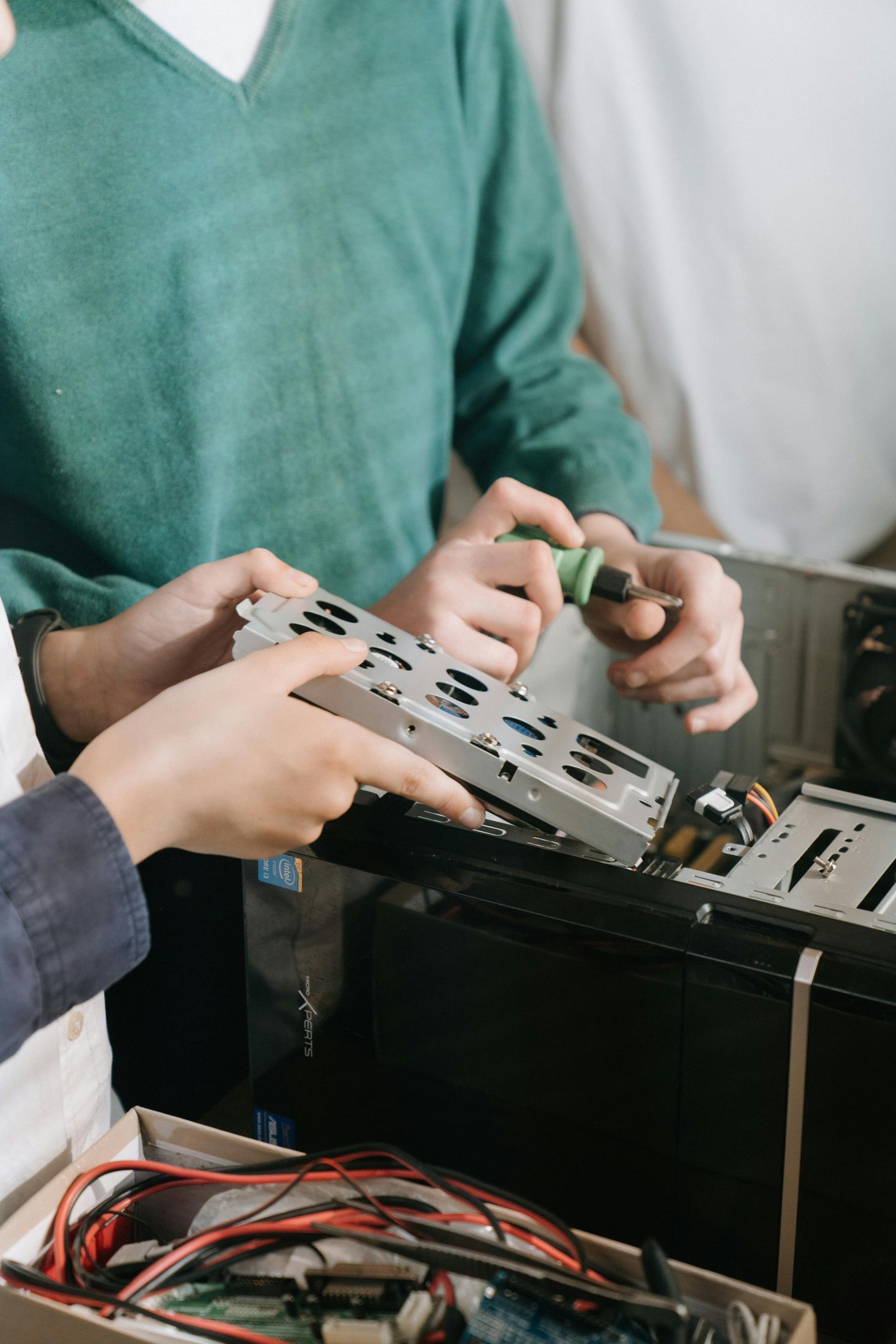DIGITAL DETOX: FINDING BALANCE IN AN ONLINE WORLD
How to disconnect from the digital world and find time, peace and relief

By Jamieson Lee Hill, March 11th, 2025
Are you feeling overloaded with information online and social media? Have you had enough gloomy news stories, toxic content, and just general information overload with people trying to constantly sell things or convert you? If so, you have arrived in the right place because I am going to show you how to disconnect from the digital sludge fuzzing up your brain!
- How Social Media & Online News Were Badly Affecting Me
- My Solutions
- Preparing for a Digital Detox
- The Benefits of a Digital Detox
- Steps to Implement a Digital Detox
- Striking a Digital Balance in Daily Life
How Social Media & Online News Were Badly Affecting Me
Your mindset can so easily be negatively affected by online media. Not to mention the strain of spending hours in front of screens with blue light affecting our brains. As a whole, we can also lose so much time scrolling social media and news websites. I realised a few years ago that it was time to start digitally detoxing because of the following ways it was negatively affecting me:
Doomscrolling News Sites & Social Media: I was constantly looking at negative headlines and social media posts, getting drawn into a rabbit hole of toxic content. It left me feeling stressed and down, plus I would sometimes scroll for 1 or 2 hours mindlessly.
I Kept Checking Notifications: Even small alerts pulled me back into social media, breaking my focus and losing valuable working time.
I Got Stuck in Pointless Debates: I found myself engaging in online arguments that drained my energy and left me feeling anxious as I was constantly checking for replies. Big no no!
Comparing My Life to Others:
Seeing other people’s ‘’perfect lifestyle’ posts and images of slim bodies made me feel like I was a failure at times. It was just a waste of time.
Social Media Became a Default Escape: Instead of dealing with boredom or stress healthily, I would reach for my phone. I should have hit the gym or gone for a run.
My Sleep Was Disrupted: Checking my phone late at night kept my brain active, making it harder to relax and leading to poor sleep quality. The blue light was keeping my brain fully alert. Insomnia was a pretty regular issue.
FOMO: The fear of missing out aka F.O.M.O made me compulsively refresh news feeds, making it hard to relax or focus on what mattered. I kept believing it was important to stay informed about world news, but it was all so toxic and nauseous.
My Solutions
Put Business Messages in One Channel: I opened a Business WhatsApp and separated out personal messages. This was because friends and family messaging was stealing my attention and time, and I was messaging them too. ‘Time thieves’ as one CEO once said to me. I channelled my personal messages through a different WhatsApp. This made me feel much less stressed about poor time management and my work focus was 10 times better.
Set Boundaries: I told my family and friends that I would be busy from 9 am to 6 pm Monday to Friday, unless it was an emergency. After that, getting contacted during working hours was rare.
News Detox for 6 Months: I abstained from political news and media for 6 months. It was incredible. I had so much extra free time and my mind was focused like a laser. In two months I read 10 novels. This was a remarkable turnaround in focus and using my time well.
Preparing for a Digital Detox
A digital detox involves intentionally disconnecting from digital devices such as smartphones, computers, television and tablets to reduce stress and improve mental health. You need to schedule times in your week to go digitally free. You will replace digital activities with offline ones, e.g. reading a book, going for a walk, swimming, camping for a weekend, etc. If you go on a retreat or camping for a long weekend or a week, it is easier to digitally disconnect. Otherwise, choose periods and days within your week.
The Benefits of a Digital Detox
It can lead to numerous benefits, including improved sleep, enhanced focus, and meaningful real-life interactions. If you love reading like me, the amount of time you have increases, the more you digitally detox. Instead of struggling through 2 books a year, read two books a month!
Also, your sleep will improve if you detox before bed as the blue light effect on your brain is reduced. The more you regulate your phone usage, the less addicted to it you become. The dopamine effect of social media notifications is one cause of addiction to socials.
Steps to Implement a Digital Detox
Embarking on a digital detox requires deliberate planning and commitment. Here are practical steps to reduce screen time:
Set Clear Goals: Define what you aim to achieve with your digital detox, whether it's improved sleep, better focus, or enhanced relationships.
Establish Boundaries: Designate specific times or areas where device use is prohibited, such as during meals or in the bedroom. What I suggest is that you start small and gradually increase your detox duration and the number of days, e.g. 3 hours on a Sunday digitally free and one evening in the week after 7 pm.
Turn Off Non-Essential Notifications: Reducing unnecessary alerts on your smartphone can minimise distractions and reduce the urge to check your device constantly.
Engage in Offline Activities: Rediscover hobbies that don't involve screens, such as reading physical books, exercising, or spending time in nature. You will be amazed by the amount of time you now have.
Use Technology Mindfully: Be conscious of your digital consumption. Before reaching for your device, ask yourself if it's necessary at that moment.
Reduce News Consumption: If you can’t bear not knowing the news, rather than abstain totally, check it weekly or twice a week. Set aside a time and duration for when you read or watch the news.
Ask ChatGPT, Copilot, Gemini or other AI tool to give you a weekly summary of the main news events, e.g. on a Wednesday after work and a Saturday afternoon. Set a time limit of one hour maximum for each period.
By doing this, you are not waking up to negative news each day and filling your head with doom and gloom each day. You take back control. It feels good. Go for it! No more rabbit hole doomscrolling! Remember the early morning is when you program your mindset for the day, so avoid reading news then.
Striking a Digital Balance in Daily Life
Achieving a healthy relationship with technology involves setting boundaries and using devices purposefully. This way we ensure that technology enhances our daily life, instead of dominating it.
As a world, we have allowed the online world to flood our lives. It is time to take back control and liberate ourselves from digital overload and despair.
Medical Research Shows Benefits of Digital Detox
More and more people are feeling the benefits of digital detoxes, and enjoying increased productivity in their lives, improved relationships, and enhanced mental clarity. Experts suggest even short-term breaks from digital media can yield significant improvements in well-being. A study by the University of Bath, where people gave up social media for one week, showed great results,
“Many of our participants reported positive effects from being off social media with improved mood and less anxiety overall. This suggests that even just a small break can have an impact.”
Source:
Dr Jeff Lambert, Lead Researcher, Department for Health, University of Bath
Final Reflections
Technology has brought great changes to our lives, but managing the amount of time we spend on digital devices is a vital part of positive mental, emotional and physical wellbeing. The benefits of regular digital detoxes will transform your life. Start this week!
One final tip is a great app called Disconnect by hypnotherapist Andrew Johnson. Listening to this app helps you to disconnect from the digital world, but be sure to turn off your wifi when you listen. Use it every day for at least 3 weeks to reprogram your mind to digitally disconnect.
Good luck! Pack those bags and go camping!
Fill out the Contact Form Below if You Need Colocation Services for Your Company.
SOURCES & FURTHER READING
- https://www.news-medical.net/news/20220506/Social-media-break-could-lead-to-significant-improvements-in-wellbeing.aspx
- https://www.forbes.com/sites/benjaminlaker/2024/10/07/entrepreneurs-recharge-with-a-digital-detox-heres-how-you-can-too/
- https://www.david-rahman.com/
- https://myfamilypsychologist.com/the-truth-about-digital-detox/?utm_source=chatgpt.com
- https://www.the-coaching-academy.com/blog/2023/12/coaching-strategiesfordigitaldetox-3550
- https://www.psychologytoday.com/us/blog/talking-about-men/202002/social-media-and-mental-health-time-digital-detox?utm_source=chatgpt.com
- https://therapist.com/technology/how-to-digital-detox/?utm_source=chatgpt.com
Contact Us











